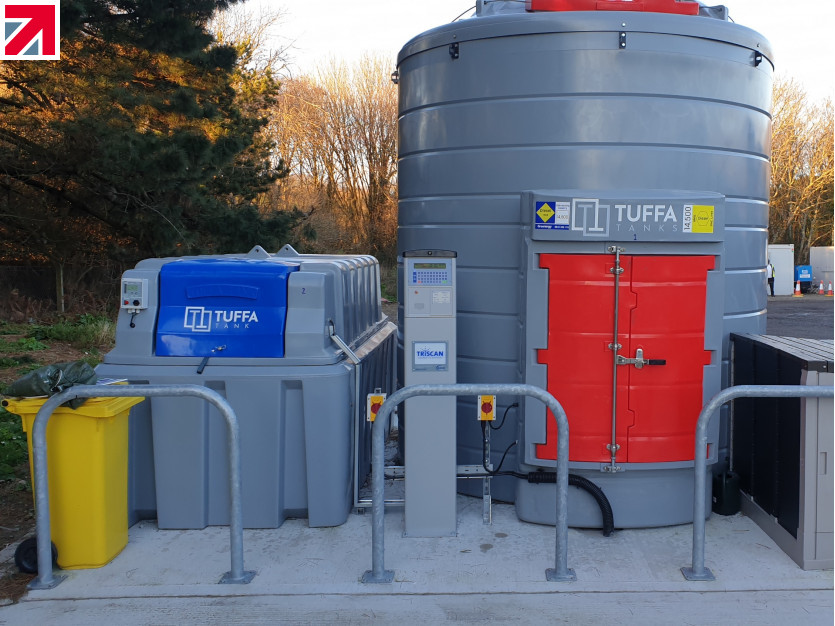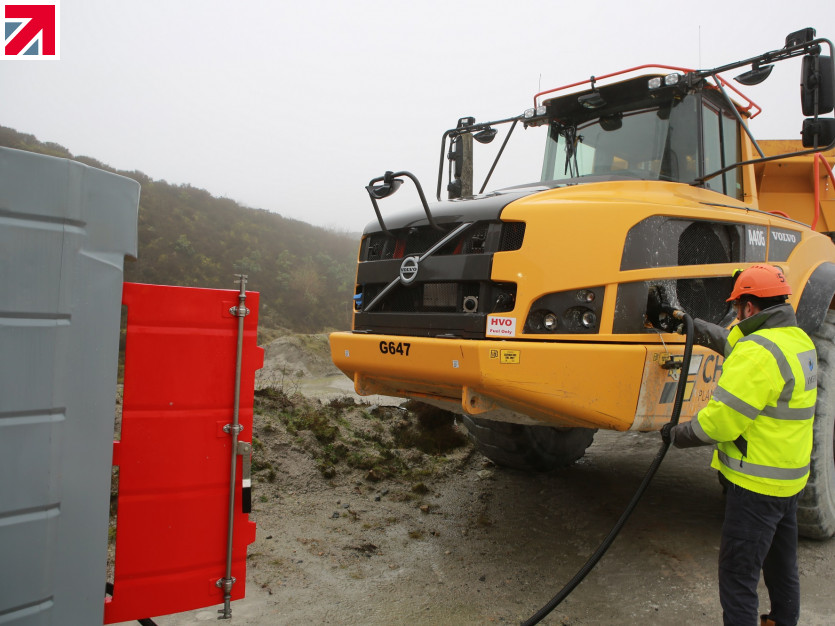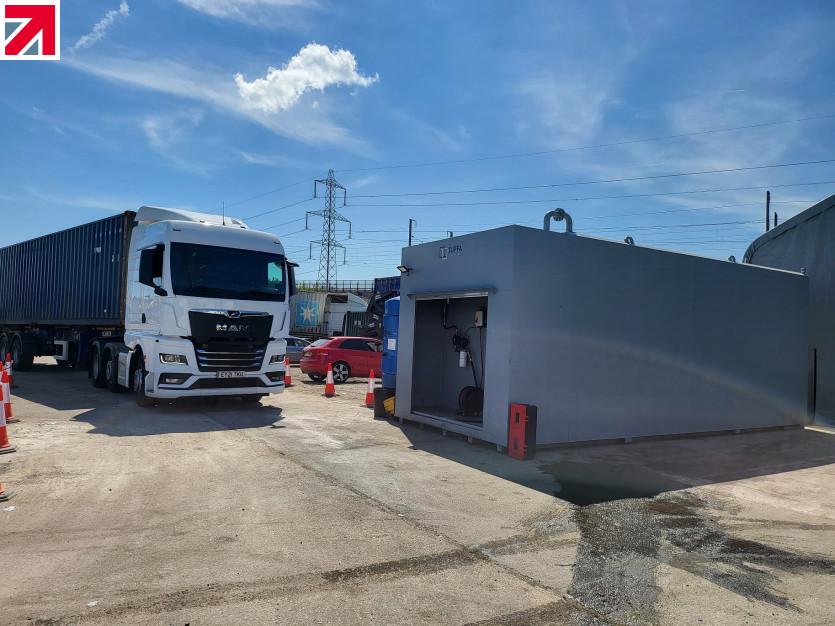Tuffa is a proud British manufacturer of fuel storage and distribution tanks in both steel and plastic, supplying a cross-sector of industries such as transport, logistics, aviation, and shipping.
Read any article about diesel, and you will undoubtedly read about biofuels as either a supplement or a replacement for fossil fuels such as diesel.
The wealth of information can be dizzying. From B20, B100, AdBlue, GTL and HVO. Where do you start? Which is the best option for you?
Before we start, which might shock you, HVO is not a biodiesel! I know, right.
HVO is a fundamentally different fuel from diesel and biodiesel. As a result, it doesn’t have the same ‘baggage’ or issues associated with biodiesel.
“Biofuel” is an important buzzword in transportation circles, and for a good reason. Plant-based or first-generation biofuel can be produced almost anywhere, comes from a renewable resource and produces cleaner emissions than petroleum-based fuel.
However, the energy to produce a plant-based fuel has its difficulties and controversies.
The top issues with pure biofuel include:
- Food Security. Biofuel production using food crops such as corn, soybeans, sorghum, and rapeseed has the potential to drastically alter the world’s access to affordable food.
- Water Usage. Ask any school child what a plant needs to grow, and they will mention sunlight and water. While the first is a bit beyond the control of biofuel producers, the second is at the core of a potentially severe drawback of plant-based fuels.
- Deforestation. It seemed like a win-win idea, with European demand for biofuel set to spike, driven partly by regulations aimed at reducing greenhouse gas emissions. Environmental chaos ensued. Industry researchers have found an answer in palm oil, a relatively easy-to-produce biofuel source. According to some estimates, expansion by Indonesian palm oil plantations caused the vast majority of that nation’s deforestation.
- Fuel to produce. It might seem somewhat counterintuitive, but scientists argue that widespread biofuel production is a negative-sum game: Producing enough biodiesel or ethanol to replace one gallon of fossil fuel, they claim, requires the energy equivalent to several gallons’ worth of petroleum-based fuel.
- Technical Challenges. The most obvious of biofuel’s drawbacks is that it isn’t a petroleum-based fuel. It operates differently in internal combustion engines designed for fossil fuel. Corn-based ethanol, for example, has a higher density than diesel fuel injectors have to be larger in an ethanol-only engine to match the fuel flow of a comparable diesel engine. And alcohol fuels (including ethanol) can corrode or damage some of the metal and rubber fittings used in petroleum-powered engines.
Let’s focus on HVO and compare the performance advantages to other biofuels.
HVO is a low-carbon, low-emission, fossil-free and sustainable alternative to conventional fossil diesel.
We must acknowledge that technology will play a fundamental role in rescuing our planet. Still, we shouldn’t lose sight of proven technology, systems, and processes.
An example would be the differing approaches between Europe being earlier adopters of B100 fuel rather than the UK’s continued HVO and B20 biofuel approach.
France, in particular, appears to be adopting B100, pure crop oil such as rapeseed, rather than HVO, which refines a waste oil product. HVO is a second-generation biofuel because it uses technology to refine and reuse these waste oils.
The decision to adopt the pure crop route is a little surprising, especially as you consider the concerns around food production not meeting global demand.
According to the GLEC framework, HVO offers around a 64 per cent reduction in emissions. Still, Neste, a company that provides the majority of HVO in Europe and Prema Energy in the UK, can achieve up to 90% emissions reduction compared to fossil diesel with their HVO.
So far, so great. Not quite. HVO does have some inherent issues, just like the biofuel issues outlined above.
- Expensive. HVO can be costly, so environmentally aware companies tend to blend HVO with conventional diesel, especially in the haulage sector. Blending is a step forward from only using fossil fuels, but adoption would increase if the cost came down. A missed opportunity?
- Available and Sustainable. The immediate problem is one of availability. The world has woken up to the possibilities for HVO, and demand is increasing. Currently, supply is limited, however, and not matching demand. New production plants scheduled to come online are still some way off. As a result, finished fuel must be shipped long distances.
Prema Energy, pioneers, and early adopters in the HVO landscape are leading the way in HVO technology, with sustainability as a priority at the heart of the work they are doing.
If you are a super-user of fossil fuel oils, we would highly recommend having a chat with the incredible people at Prema.
Tuffa makes HVO, B100, AdBlue, Diesel and Petrol tanks up to 100,000 litres in capacity, so whichever carbon reduction route you take, we’ve got you covered.
Contact our friendly Sales team for more information and advice or quotes, including discounts on trade prices.
Find out more about Tuffa Tanks on their member profile page here
Member-created content 2 years ago | From members


